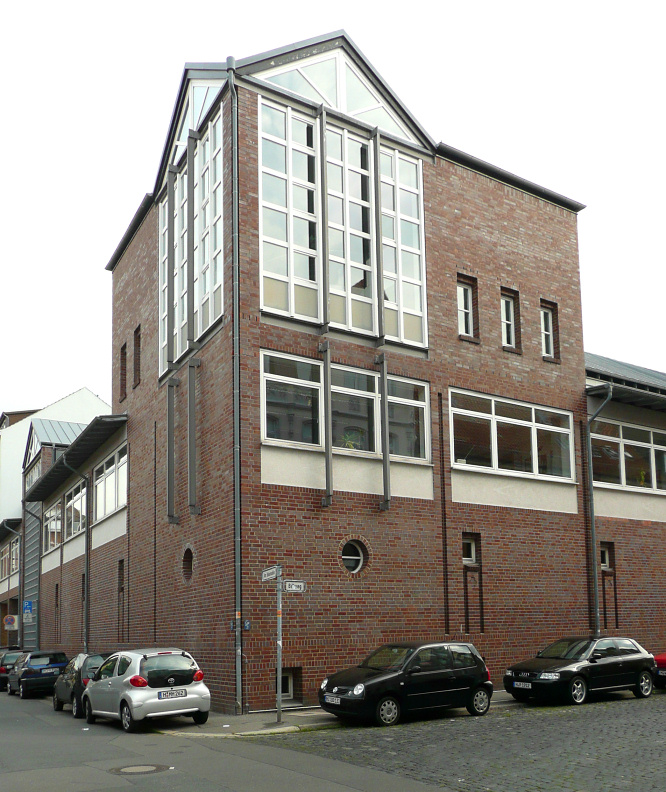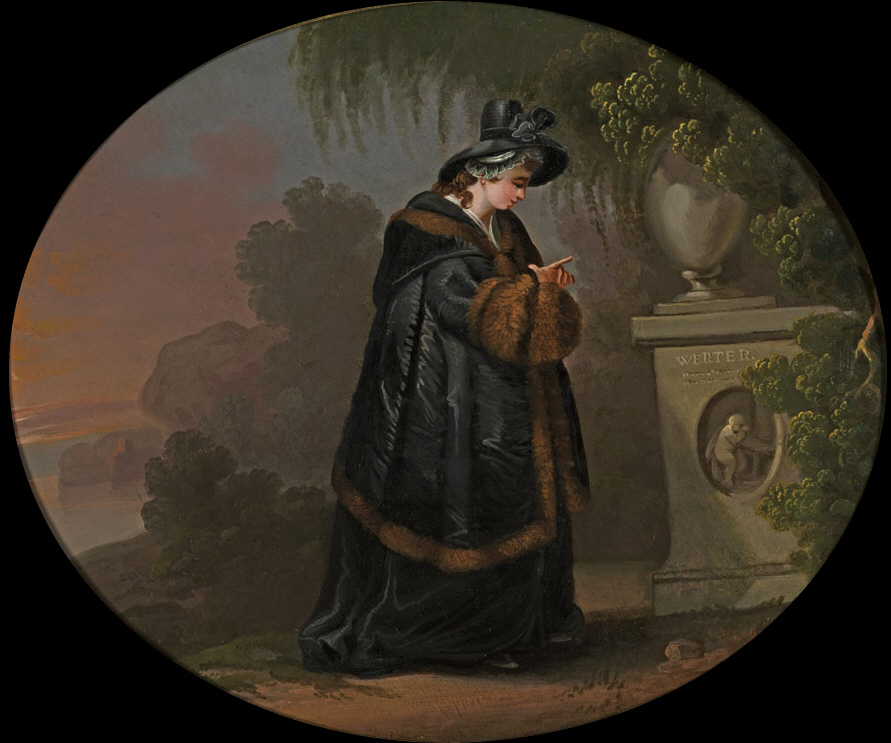|
Johann Christian Kestner
Johann Georg Christian Kestner (28 August 174124 May 1800) was a German lawyer and archivist. He is also notable as the model for Lotte's husband Albert in ''The Sorrows of Young Werther'' by Johann Wolfgang von Goethe, Goethe, with Kestner's fiancée Charlotte Buff used as the model for Lotte herself. Life In the 18th and 19th centuries the Kestner family was one of the hübsche families, families at court (german: hübsche Familien). As a young Electorate of Brunswick-Lüneburg, Brunswick-Lüneburg legation secretary in the Reichskammergericht, imperial chamber court () in Wetzlar from 1767 to 1773, he met and became engaged to Charlotte Buff, a daughter of the bailiff of the local . Goethe also worked at the same court during 1772 and got to know both Kestner and Buff. Goethe fell in love with Buff, nicknaming her "Lotte", even though she was already engaged. This love and Karl Wilhelm Jerusalem's suicide using Kestner's borrowed pistols were both used by Goethe in ''The Sorr ... [...More Info...] [...Related Items...] OR: [Wikipedia] [Google] [Baidu] |
August Kestner
Georg Christian August Kestner (28 November 1777, in Hanover – 5 March 1853, in Rome) was a German diplomat and art collector. Life Kestner was the son of civil servant Johann Christian Kestner and his wife Charlotte Buff. Johann Wolfgang von Goethe met and fell in love with Charlotte while she was engaged to Johann. Repeated rejections by Buff partially provided the youthful suffering that Goethe lets the hero of his work (''The Sorrows of Young Werther'') experience.Mandelkow, Karl Robert (1962). ''Goethes Briefe''. Vol. 1: ''Briefe der Jahre 1764-1786''. Christian Wegner Verlag. p. 590-592 From 1796 to 1799 Kestner studied law at the University of Göttingen and was immediately afterwards called up as a ''Vernehmungsrichter'' (interrogation judge) at the court in Hanover. In 1803 Kestner was appointed 'secret office-secretary in the civil service'. As such, he made his living from 1818 to 1849, among other things, as an official envoy and Minister-resident in Rome and N ... [...More Info...] [...Related Items...] OR: [Wikipedia] [Google] [Baidu] |
1741 Births
Events January–March * January 13 – Lanesborough, Massachusetts is created as a township. *February 13 – Sir Robert Walpole, the Prime Minister of Great Britain, popularizes the term "the balance of power" in a speech in Parliament. *February 14 – Irish-born actor Charles Macklin makes his London stage debut as Shylock in ''The Merchant of Venice'' at the Theatre Royal, Drury Lane, pioneering a psychologically realistic style with Shakespeare's text revived, replacing George Granville's melodramatic adaptation ''The Jew of Venice''. *March 9 – Prussian troops bring down the Austrian fortress of Glogau (modern-day Głogów in Poland). *March 13 – The British Royal Navy takes 180 warships, frigates and transport vessels, led by Admiral Edward Vernon, to threaten Cartagena, Colombia, with more than 27,000 crew against the 3,600 defenders. April–June * April 6 – The New York Slave Insurrection, a plot to set fire to New Y ... [...More Info...] [...Related Items...] OR: [Wikipedia] [Google] [Baidu] |
Hugo Thielen
Hugo Thielen (born 1946) is a German freelance author and editor, who is focused on the history of Hanover, the capital of Lower Saxony, in a lexicon of the city, another one especially of its art and culture, and a third of biographies. He co-authored a book about Jewish personalities in Hanover's history. Life Thielen studied German language and literature, philosophy and education at the University of Bonn from 1966, completing with the Staatsexamen in 1971. He has lived in Hanover from 1973, working as editor and author for various publishing houses. He worked for , a publisher mainly of school readers, until 1981, for the Th. Schäfer Verlag until 1995, also for the Postskriptum Verlag, for Hirschgraben, a publisher of school readers in Frankfurt am Main, for in Lüneburg and Springe, and for . From 1983 to 1995 he was a freelance music critic for the ''Hannoversche Allgemeine Zeitung'' (HAZ). He is head of a Verlagsbüro, an office for freelance writers. Publications T ... [...More Info...] [...Related Items...] OR: [Wikipedia] [Google] [Baidu] |
Siegfried Rösch
Siegfried is a German-language male given name, composed from the Germanic elements ''sig'' "victory" and ''frithu'' "protection, peace". The German name has the Old Norse cognate ''Sigfriðr, Sigfrøðr'', which gives rise to Swedish ''Sigfrid'' (hypocorisms ''Sigge, Siffer''), Danish/Norwegian ''Sigfred''. In Norway, ''Sigfrid'' is given as a feminine name. official statistics at Statistisk Sentralbyrå, National statistics office of Norway, http://www.ssb.no; Statistiska Centralbyrån, National statistics office of Sweden, http://www.scb.se/ The name is medieval and was borne by the legendary dragon-slayer also known as . It did survive in marginal use into the modern period, but after 1876 it enjoyed renewed popularity d ... [...More Info...] [...Related Items...] OR: [Wikipedia] [Google] [Baidu] |
Anna Wendland
Anna may refer to: People Surname and given name * Anna (name) Mononym * Anna the Prophetess, in the Gospel of Luke * Anna (wife of Artabasdos) (fl. 715–773) * Anna (daughter of Boris I) (9th–10th century) * Anna (Anisia) (fl. 1218 to 1221) * Anna of Poland, Countess of Celje (1366–1425) * Anna of Cilli (1386–1416) * Anna, Grand Duchess of Lithuania (died 1418) * Anne of Austria, Landgravine of Thuringia (1432–1462) * Anna of Nassau-Dillenburg (died 1514) * Anna, Duchess of Prussia (1576–1625) * Anna of Russia (1693–1740) * Anna, Lady Miller (1741–1781) * Anna Russell, Duchess of Bedford (1783–1857) * Anna, Lady Barlow (1873–1965) * Anna (feral child) (1932–1942) * Anna (singer) (born 1987) Places Australia * Hundred of Anna, a cadastral district in South Australia Iran * Anna, Fars, a village in Fars Province * Anna, Kohgiluyeh and Boyer-Ahmad, a village in Kohgiluyeh and Boyer-Ahmad Province Russia * Anna, Voronezh Oblast, an urban locality in Vo ... [...More Info...] [...Related Items...] OR: [Wikipedia] [Google] [Baidu] |
Stadtarchiv Hannover
The Stadtarchiv Hannover is the municipal archive of the German city of Hannover, the capital of Lower Saxony. Originating before 1300 and still with strong medieval holdings, it holds the collected documents produced by the mayor, the city council and administration. Its earliest surviving document dates to 1241, and the only pre-modern gap in its records results from the Knochenhauer-Amtshaus-fire of 1428. The catalogue was stored offsite during World War II and survived, although building registry documents were destroyed by bombing in 1943. A flash flood in 1946 also destroyed 19th-century documents. External links Stadtarchiv HannoverHanover {{Authority control Hannover Hanover (; german: Hannover ; nds, Hannober) is the capital and largest city of the German States of Germany, state of Lower Saxony. Its 535,932 (2021) inhabitants make it the List of cities in Germany by population, 13th-largest city in Germa ... category:History of Hanover (city) category:History o ... [...More Info...] [...Related Items...] OR: [Wikipedia] [Google] [Baidu] |
Electorate Of Hanover
The Electorate of Hanover (german: Kurfürstentum Hannover or simply ''Kurhannover'') was an electorate of the Holy Roman Empire, located in northwestern Germany and taking its name from the capital city of Hanover. It was formally known as the Electorate of Brunswick-Lüneburg (german: Kurfürstentum Braunschweig-Lüneburg). For most of its existence, the electorate was ruled in personal union with Great Britain and Ireland following the Hanoverian Succession. The Duchy of Brunswick-Lüneburg had been split in 1269 between different branches of the House of Welf. The Principality of Calenberg, ruled by a cadet branch of the family, emerged as the largest and most powerful of the Brunswick-Lüneburg states. In 1692, the Holy Roman Emperor elevated the Prince of Calenberg to the College of Electors, creating the new Electorate of Brunswick-Lüneburg. The fortunes of the Electorate were tied to those of Great Britain by the Act of Settlement 1701 and Act of Union 1707, which ... [...More Info...] [...Related Items...] OR: [Wikipedia] [Google] [Baidu] |
The Sorrows Of Young Werther
''The Sorrows of Young Werther'' (; german: Die Leiden des jungen Werthers) is a 1774 epistolary novel by Johann Wolfgang von Goethe, Johann Wolfgang Goethe, which appeared as a revised edition in 1787. It was one of the main novels in the ''Sturm und Drang'' period in German literature, and influenced the later Romanticism, Romantic movement. Goethe, aged 24 at the time, finished ''Werther'' in five and a half weeks of intensive writing in January to March 1774. It instantly placed him among the foremost international literary celebrities and was among the best known of his works. Plot summary Most of ''The Sorrows of Young Werther'', a story about a young man's extreme response to unrequited love, is presented as a collection of letters written by Werther, a young artist of a sensitive and passionate temperament, to his friend Wilhelm. These give an intimate account of his stay in the fictional village of Wahlheim (based on , near Wetzlar), whose peasants have enchanted him with ... [...More Info...] [...Related Items...] OR: [Wikipedia] [Google] [Baidu] |



